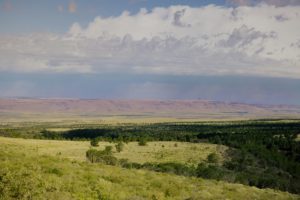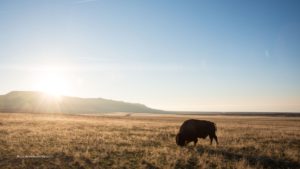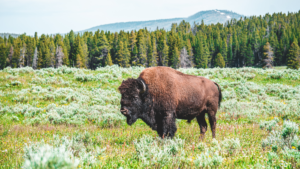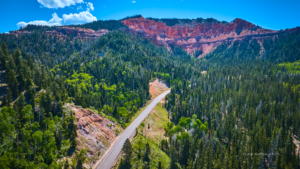For Immediate Release, October 15, 2019
Contact:
John Persell, Western Watersheds Project, (503) 896-6472, jpersell@westernwatersheds.org
Andrea Santarsiere, Center for Biological Diversity, (303) 854-7748, asantarsiere@biologicaldiversity.org
Bonnie Rice, Sierra Club, (406) 582-8365, bonnie.rice@sierraclub.org
PINEDALE, Wyo.— Conservation groups today blasted a U.S. Forest Service decision to authorize continued livestock grazing in the Bridger-Teton National Forest. The forest encompasses the headwaters of the Green River, an area important for grizzly bear recovery and elk, deer and pronghorn migrations. The Service itself determined that the plan’s grazing is “likely to adversely affect” grizzly bears, which are protected under the Endangered Species Act.
“The Upper Green River area has historically been a hotspot for grizzly bear activity as well as killings of the great bear resulting from negligent livestock management,” said John Persell, Staff Attorney for Western Watersheds Project. “Instead of requiring grazing permittees to use non-lethal methods only, the Forest Service is approving a business-as-usual approach that allows livestock operations to do little to prevent grizzly bear predation on livestock, then turn around and seek the killing of bears when they do what comes naturally, which is to kill and eat the easiest and most vulnerable prey.”
The grazing decision institutionalizes overgrazing on national forest lands, to the detriment of streams and trout populations in the bottomlands as well as harming sage-grouse habitats in the uplands. Most allotments allow 50 percent removal of grasses, and one set of pastures permits 65 percent forage removal, even though range science recommends that a maximum of 25-30 percent of forage be allocated to domestic livestock.
“The Upper Green is a hot spot for grizzly bear conflicts with livestock, but the Forest Service decided to just keep waving cows in front of hungry bears,” said Andrea Santarsiere, a senior attorney at the Center for Biological Diversity. “This disappointing decision will get more livestock eaten and more bears shot. Yellowstone’s treasured grizzly bears deserve better.”
The plan doesn’t even require ranchers to haul off livestock carcasses when cattle die from other causes. Instead, owners of dead cows need only haul carcasses half a mile from the nearest road, where they are likely to be scavenged by grizzly bears and wolves. That will help amplify livestock-wildlife conflicts and lead to further killing of native carnivores.
“The Upper Green area has consistently been the biggest source of grizzly bear mortality as a result of conflicts with livestock in the entire Greater Yellowstone ecosystem, with dozens of bears being killed. Yet permittees are not being required to undertake proven methods to prevent those conflicts” said Bonnie Rice, senior representative with Sierra Club’s Our Wild America campaign. “This is yet another example of politics trumping science-based decision making and the agency’s responsibility to recover threatened species.”
The groups are currently studying the legal options for a challenge to the decision.
The Center for Biological Diversity is a national, nonprofit conservation organization with more than 1.6 million members and online activists dedicated to the protection of endangered species and wild places.
Western Watersheds Project is an environmental conservation nonprofit working to protect and restore watersheds and wildlife throughout the American West.
The Sierra Club is America’s largest and most influential grassroots environmental organization, with more than 3.5 million members and supporters. In addition to protecting every person’s right to get outdoors and access the healing power of nature, the Sierra Club works to promote clean energy, safeguard the health of our communities, protect wildlife, and preserve our remaining wild places through grassroots activism, public education, lobbying, and legal action.
###






